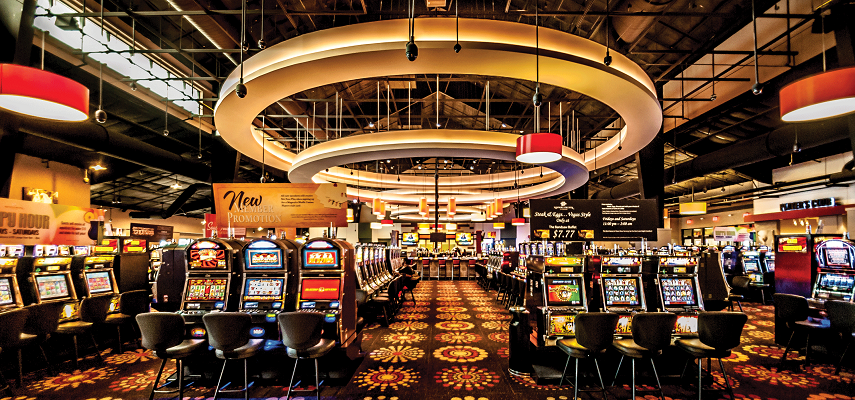Photo by Adrian Trinkaus on Unsplash
Modern gamblers have access to a growing number of betting markets thanks to online services. While traditional betting venues like casinos, race tracks, arcades, and licensed betting offices are still common, online operations offer an additional level of convenience for consumers.
The majority of US consumers have access to smartphones and other mobile devices, and the ability to play on the move appeals to most. With so many choices, it can be difficult, but gambling regulations in the US have an influence on what markets are available to bettors.
How Gambling Regulations Affect Casinos in the US
Unlike most countries, gambling regulations differ by state. This means that consumers living just a few miles apart can have vastly different gambling laws.
As if this weren’t confusing enough, there are also differences between laws for retail casinos, tribal casinos, and online casinos. This has seen consumers in states where certain markets are prohibited explore alternative options, with sweepstakes casinos one of the most popular.
Online casino specialist Mike Epifani of Yay Sweepstakes reviews the top options for consumers based on their winning potential, game selection, customer support, and bonuses, explaining that their model circumvents current gambling regulations by allowing players to use in-game currencies. But how do Sweepstakes casinos differ from traditional casinos, and why are they proving to be so popular among bettors?
Sweepstakes Casinos
Sweepstakes casinos typically operate using two in-game currencies. The first in-game currency gives customers the opportunity to play games for fun, with no monetary value to them. Sweepstakes coins are different as they hold value and can be traded for prizes, and when signing up for the first time, players will be given a specified amount of each to start with.
Players can then earn more sweepstakes coins by regularly logging in and carrying out other actions, like watching videos from advertising partners, sharing content, and taking part in giveaway competitions. Sweepstakes coins are often given as a bonus when buying coin bundles that can be played for fun. This works around legislation prohibiting coins that can be redeemed from being paid for.
Sweepstakes casinos are legal in the majority of US states, and despite not qualifying as traditional gambling sites by law, they still have to comply with federal and state laws. The minimum age for sweepstakes casinos is 18, with many operators operating 21+ services. KYC (know your customer) procedures must be followed by operators so they can determine the age and location of the player, and minimize the risk of money laundering or criminality.
As well as offering players a variety of traditional casino games, sweepstakes casinos also offer a variety of unique titles, bingo, crash games, plinko, and more. Dedicated sweepstakes apps provide a smooth and responsive gaming experience for players, with the best operators also having responsive, around-the-clock support teams.
Traditional Casinos
Traditional casinos are a more direct way for people to gamble, but state laws can be complicated for consumers. Most states offer some form of casino gambling, with retail and tribal casinos relatively common.
Only Hawaii and Utah have no gambling markets at all, but online casinos are also in the minority. Only seven US States, New Jersey, Rhode Island, Delaware, Michigan, Pennsylvania, Connecticut, and West Virginia, currently allow state-licensed online casinos, but many more have considered bills exploring legislative change.
The popularity of online casinos in the US is on the rise as the majority of consumers have access to devices that facilitate play. While most states currently prohibit operators from setting up in-state, offshore online casinos provide a convenient loophole that allows players to enjoy casino games.
Access to offshore casino markets is something that is forcing many states to consider current regulations, with consumers at more risk of playing in countries where regulations might not be as tight. Customer disputes are also something that US state regulators won’t be able to step in on, with many campaigners calling for legal online casinos as a result.
States that have licensed online casinos are in a position to oversee regulations and will also benefit from revenue streams, including licensing and taxation. Tax revenue is often redistributed to local communities to improve infrastructure and education.
The standard of online casinos has dramatically improved in recent years as developers gain access to new and emerging technologies. Improving devices and connectivity have also played a massive part in operators being able to provide immersive online casino experiences for consumers.
Live dealer table games, the implementation of AI to improve gameplay and personalize marketing, and the gamification of slots through bonus rounds have all seen online casinos becoming a genuine alternative to land-based alternatives.
Of course, the live experience will never be fully replicated, and a night at the casino can be a great way to spend your time with food, drink, and a selection of the best games to enjoy. However, VR implementation in online casinos can offer something different and equally enjoyable.
Conclusion
Sweepstakes casinos, as an alternative to online casinos, are doing so well that many states are exploring legislative changes to bring them in line with online casinos. At present, the majority allow these options where consumers can play using in-game currencies, which can then be traded for prizes.
The US gambling industry is one of the biggest in the world, but it is still in a state of flux. Sweepstakes casinos provide a legal outlet for millions of Americans who want to enjoy casino games and the thrill of winning, without breaking laws.































